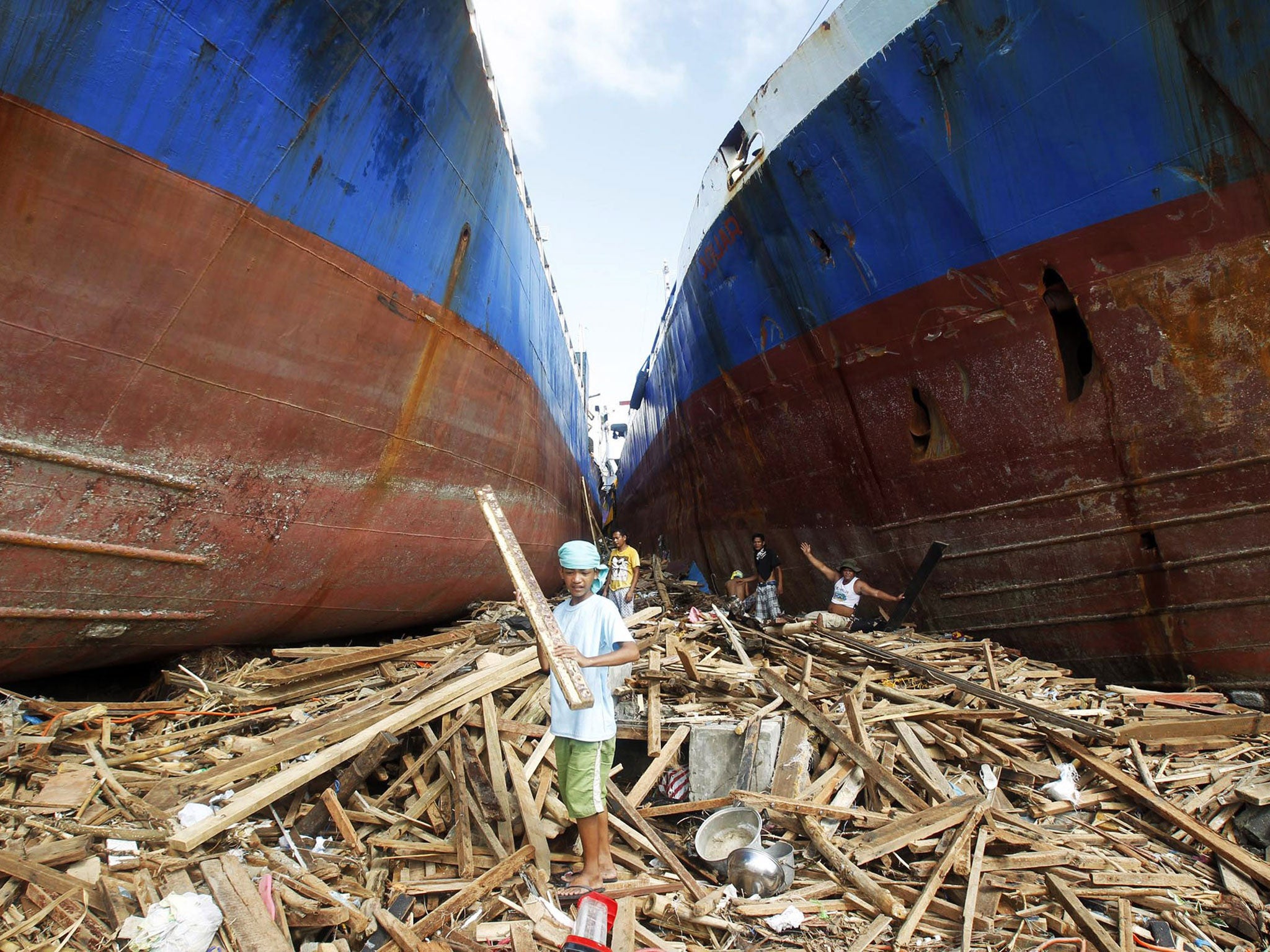It seems global warming is making storms worse – but some say it’s hot air

Your support helps us to tell the story
From reproductive rights to climate change to Big Tech, The Independent is on the ground when the story is developing. Whether it's investigating the financials of Elon Musk's pro-Trump PAC or producing our latest documentary, 'The A Word', which shines a light on the American women fighting for reproductive rights, we know how important it is to parse out the facts from the messaging.
At such a critical moment in US history, we need reporters on the ground. Your donation allows us to keep sending journalists to speak to both sides of the story.
The Independent is trusted by Americans across the entire political spectrum. And unlike many other quality news outlets, we choose not to lock Americans out of our reporting and analysis with paywalls. We believe quality journalism should be available to everyone, paid for by those who can afford it.
Your support makes all the difference.Did global warming make Typhoon Haiyan worse than it would otherwise have been? Impossible to say for sure, but many scientists believe that higher temperatures are increasingly likely to tip the scale in favour of ever-more severe tropical cyclones.
With wind speeds approaching 200mph, Haiyan is probably the strongest tropical storm to make landfall since records began, according to Stefan Rahmstorf of the Potsdam Institute for Climatic Impact Research. He is one of those in favour of the idea that global warming will increase the chances of bigger storms.
“Such storms have increased in the past three decades, and climate models suggest a further increase for the future,” Dr Rahmstorf said. “Global warming aggravates the impacts of storms like Haiyan: extreme rainfall that comes along with tropical storms causes floods and landslides, because evaporation rates and moisture content of the air increase in a warmer climate. Furthermore, there are storm surges at the coast, because the sea level rises due to global warming.”
Tropical cyclones – hurricanes in the Atlantic and typhoons in the Pacific – are triggered when sea-surface temperatures rise above a certain level. They are driven by heat energy stored in the ocean and in the moisture content of the air, which is converted into wind. So in theory, at least, it seems reasonable to assume that the hotter things get, the higher the likelihood of big tropical storms forming. The difficulty when looking at climate and weather data is linking any one event, such as Typhon Haiyan, with global warming.
“Although Typhoon Haiyan is a severe Category 5 storm with reported maximum sustained winds of 315kmh (195mph) when it hit the Philippines, it is not surprising to see these types of events in the world,” said Professor Priyan Mendis at the University of Melbourne.
“Cyclone Tracy in 1974 in Australia is a good example – the wind gauge in Tracy was destroyed at 217kph. October last year we watched Hurricane Sandy in USA,” Prof Mendis said.
Attempts at observing trends in tropical cyclones have produced conflicting results over whether storms have become more frequent or intense as global temperatures have risen.
A study in 2008 found that tropical cyclones are getting stronger on average with a 30-year trend related to rising sea temperatures. However, a study in 2012 by Roger Pielke of Colorado University found no observable increase in tropical cyclone wind speeds at landfall. Researchers attributed increased damage to more expensive infrastructure built (and insured) near coasts.
The lack of clear evidence one way or the other led the Intergovernmental Panel on Climate Change to estimate with “low confidence” that global warming contributes significantly to current cyclone activity.
Join our commenting forum
Join thought-provoking conversations, follow other Independent readers and see their replies
Comments